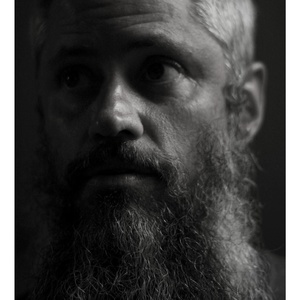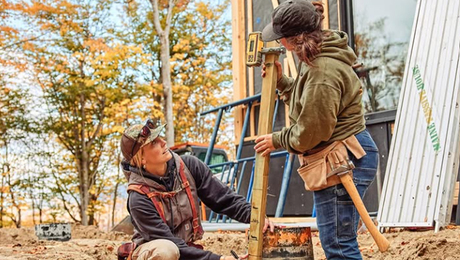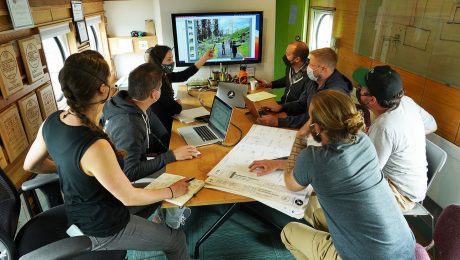
Five years ago, one builder’s anonymous, two part series “How I Wrecked My Business, Screwed My Friends, and Almost Destroyed My Marriage,” became one of Fine Homebuilding‘s most talked about and widely read blogs. The author, who wrote under the pen name Mr. X, acknowledged the devastating effects on his life and business of the deepest recession to hit home building since the Great Depression. Yet he didn’t hide behind the crash. Mr. X accepted and detailed his role in the failure of his highly ambitious and once successful company. He even wrote the lessons he “learned the hard way” as an epilog to his blog, and it’s worth reading again.
The list of lessons learned included some business basics, such as, develop a strong business plan and follow it; define work relations clearly; and don’t spend your profits before the money is in the bank–even if you’re spending it on fabulous marketing opportunities. When there’s no money, great publicity won’t pay the bills.
That Was Then, This is Now
I wondered how Mr. X was doing seven years after his business went belly up. I wanted to know if he had any new insights that could be useful for the rest of us. So I emailed, and he replied. We spoke on the phone. I asked Mr. X, whose real name is Robert Moody, or Rob, now a green-building consultant and software entrepreneur, how he viewed what happened to his former company, Eco-Builders, with the perspective that comes from a nearly decade of soul-searching?
“Eco-Builders was my baby. I drew the logo and built it up, so after losing the company, it was a hard reset for my life–like installing a new computer operating system after a crash. I had to set everything up again. It could have been really bad for my wife and me, for my family, but we used the hardship to get closer together, we got very close.”
I asked what he would do differently, if he could change the past, but Rob told me he wouldn’t change a thing, “If things had not gone as they did, I would not be the man I am today, and I am much happier now.” But pressing him a bit, Rob admitted he would be much more careful about every business agreement he entered. “I would not take on partners so easily,” was the most significant change he repeated several times. The damage done to relationships was the hardest part for him. “I don’t get married. I make sure any business arrangements are not difficult to out of,” Rob told me, comparing partnerships to wedlock. Rob uses a lighter form of contract agreement when joining forces with others to work toward a common business goal, the “MOU,” or Memorandum of Understanding, which outlines goals and working relationships in a project, but remains less binding, and hence easier to get out of, than a formal partnership.
Rob managed to rebuild some of the relationships lost. The most important, re-establishing his friendship with the former roommate and best friend who became his ex-business partner, “He would not even talk to me for a long time. It felt bad. I felt abandoned. I later learned there was a lot more to it. He suffered a lot, too. He felt guilt about his own mistakes. He felt as if he was a total failure.” Rob believed his former friend and partner resented him, but the real reason behind his silence was the opposite, his friend felt too ashamed to reach out.
But others were bitterly angry with Rob, especially the subs who lost money. One exceptionally hostile sub even slandered Rob in response to the Mr. X blogs (the comments were taken down as inappropriate). “I was actually trying to do right by him and others back then, but that same guy that wrote about me with such venom is facing bankruptcy today. What goes around comes around. He was building a house, and he had to give up the job. The homeowner offered it to me. You’d think I’d gloat, but I didn’t. I felt bad for him. I’d hoped he would be the exception.”
In case anyone wonders if Rob paid for his mistakes, he did. “At that time, I was so stressed that I couldn’t eat. I endured death threats. I left town for a while, and I went where nobody could find me. I stayed at a battered woman’s shelter.” Which was precisely the place where Rob hit bottom and then found his new pathway. “I had a gig consulting for the Salvation Army at the time. I was staying at the shelter when I reached my lowest point. I suddenly passed out, fell, and hit my head. I came back to consciousness on the floor. And then I realized I just could not treat myself this way. I decided then that from here forth I won’t hide, I will be kind, and I will not repeat the same mistakes again.”
Most of the guys Rob owed money to back then are now his friends again. And no, he was never able to pay them back.
Mr. X Today
To reestablish his life, Rob had to re-evaluate what he really knew. “I’d been a high-school teacher and then a builder, so I thought–what can I do? I know how to teach and I know how to build a cool house. But you don’t need a bank loan to teach, so although I felt like a failure, I also felt determined to push forward. I got involved with the Green Building Council. I realized judicious use of resources on every level was what I, and our national economy needed. So I became LEED faculty, and this became the door to a new life teaching green building.”
Today, Rob is a RESNET Quality Assurance Designee, and a LEED® AP, Homes & International Green Rater with his own training service called “Organic Think.” Check out his website, it’s very cool. Rob works with nonprofits and educational institutions to provide training and help develop strategies for these agencies to help improve the built environment.
But his entrepreneurial spirit is not broken. Using his experience and talent as a teacher, Rob has found a new outlet for his ambition, having just launched beta-testing on an innovative on-the-job training app for RESNET Rating Inspectors. The app, JobWorks™, can best be described as an interactive, internship tool that a candidate for certification can take on the job to guide and also chronical his work. The app combines a resource library with guided tutorials and live support from RESNET Quality Assurance Designees. Candidates earn RESNET certificates after completing the training, with work evaluations provided by remote RESNET Mentors.
Conclusions
Despite the good personal outcome, and all the lessons learned, it’s not clear to me that Mr. X could have saved his business even having made all the right moves at the right time. He was a spec builder running a very young company, and even some of the largest and the most well-organized spec builders failed. The economic tempest was more than even the best, and most seasoned captains could sail through. A few weeks ago, this blog featured the story of Mike Roberts, a $45-million builder that fell to the same headwinds as Mr. X. One of many hundreds of building-company casualties.
In contemplating these stories, what strikes me in common to all accounts of both success and failure is the roll of entrepreneurial euphoria. The rush of “irrational exuberance,” to quote former Fed Chief Alan Greenspan, is that feeling on invincibility that both Mike Roberts and Mr. X describe as characterizing the apex in their season of success. The feeling of absolute conviction and confidence that fuels the entrepreneur’s manic effort and allows him to ignore the risk even when signing all those “personal guarantees.” Although clearly irrational, it’s actually a vital quality, essential to any ambitious venture.
Be sure that all entrepreneurs make mistakes. Some are in the right place at the right time and succeed in spite of themselves. As Rob told me, “The worst thing I did was make some business mistakes. It went down, because I was in the wrong place at the wrong time. The best thing I did was how I changed in response to my mistakes. Now I can appreciate all the days that are not all that bad. I appreciate the people I love and the chance to spend a few short years with them here on earth.”
Maybe the lesson to learn is not how to bulletproof your business. It’s likely impossible, and the effort required to make no mistakes would likely sap you of all creativity. Just exercise reasonable caution, never forgetting that businesses do fail and yours may. And especially, remember that great failures are preceded by great success. It’s in that moment of success that the greatest danger lies. But it’s also the risk taker that invents the new product, builds the flagship enterprise, and inspires us all to follow our dreams. It’s clear to me that both Roberts and Mr. X learned their lessons, and now apply them. They have also found their entrepreneurial mojo again. They continue taking risks, and they are now succeeding in new ventures. This time, they will handle success better. Experience does that. And they go forward with greater caution, but without fear. Unafraid to look failure in the eye, they can keep their eyes open this time. They know that failure, although infinitely unpleasant, is as much a new beginning as an end.
Fine Homebuilding Recommended Products
Fine Homebuilding receives a commission for items purchased through links on this site, including Amazon Associates and other affiliate advertising programs.

8067 All-Weather Flashing Tape

Handy Heat Gun

Affordable IR Camera

Today, Rob is a RESNET Quality Assurance Designee, and a LEED® AP, Homes & International Green Rater with his own training service called "Organic Think."


























